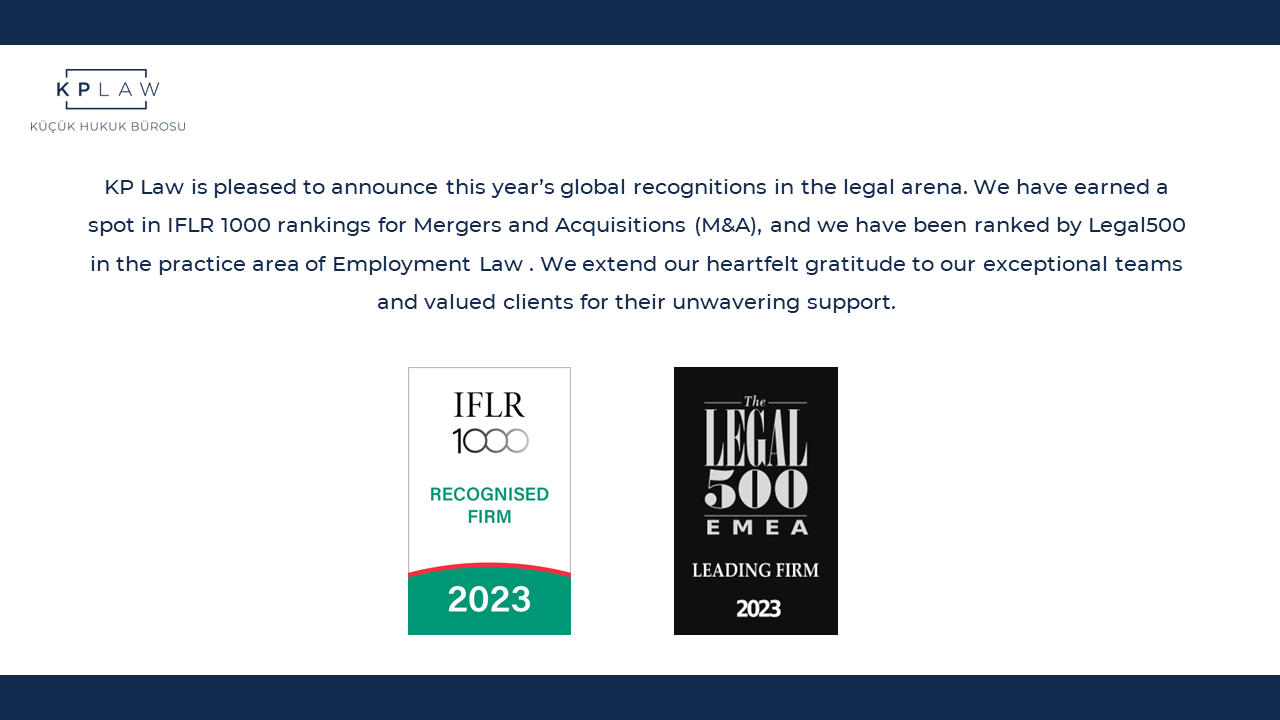News & Insights
Strengthening Intellectual Property Rights: Turkey's Customs Vigilance

Mine Peynircioğlu | ASSOCIATE
16.10.2023In the realm of safeguarding intellectual property rights and combating counterfeiting, Turkey has spearheaded an exceptionally efficient customs program. This initiative operates seamlessly across 154 custom points nationwide, intercepting suspected goods swiftly and effectively. At the forefront of this effort is the Turkish Customs Administration, a dedicated entity designed to empower rightsholders in their pursuit to curtail the influx of counterfeit and infringing products across borders.
Streamlined Protection: Application, Registration, and Verification
To access the robust protection offered by the Turkish Customs Administration, rightsholders must register their intellectual property. Trademarks, designs, patents, and copyrights can be recorded conveniently through the customs' online registry. Once approved, these rights are officially registered in the customs database for a year, renewable indefinitely. This exclusive registration enables customs authorities to halt transit commodities and alert rightsholders about potential violations.
Customs officials play a vital role in actively monitoring imports and exports at pivotal entry points. Leveraging a comprehensive database, they swiftly identify and seize counterfeit or infringing goods. Upon detecting goods suspected of infringing recorded intellectual property rights, customs officials promptly notify the rightsholder or their representative, acting as a crucial early warning system.
Suspected goods can be temporarily detained, allowing rightsholders to verify their authenticity and take necessary legal action. If the goods are timely confirmed as infringing by the rightsholder, they can be seized and ultimately destroyed.
Turkey’s Crucial Geographical Position as a Transit Location
According to the latest Special 301 Report by the United States Trade Representative, Turkey ranks 3rd for counterfeit manufacturing and is a significant transshipment point for counterfeits from China to Europe. Turkey's pivotal geographical location, bridging Europe and Asia, has solidified its status as a critical trade hub. Major ports and entry points such as Istanbul, Mersin and Kapıkule serve as key battlegrounds in the fight against counterfeiting. With substantial transit volumes passing through these ports, tight customs surveillance is imperative to safeguard intellectual property rights.
Empowering Customs Through Education: IPR Awareness and Training
The Turkish Customs Administration actively acknowledges the role of education in countering counterfeiting. Organizing webinars and training sessions on intellectual property rights and customs surveillance, they provide a valuable platform for rightsholders, customs officials, and legal experts to stay updated on the latest developments. The increasing attendance at these events underscores the growing awareness and commitment to intellectual property rights in Turkey.
Nationwide Network: The Reach of Customs Directorate
Turkey's Customs Program's success is underpinned by an extensive network of customs directorates across the country. With 19 Customs and Foreign Trade Regional Directorates and 170 customs directorates, 154 actively engaged, accessibility to customs is ensured throughout Turkey.
In recent years, the number of applications to Turkey's Customs Program has steadily risen, reflecting the heightened awareness of and emphasis on protecting intellectual property rights. With approximately 2,100 applications in 2023 alone, the importance of this mission is reinforced.
Global Recognition: Turkey as a Significant Stakeholder in Customs Seizures
In the broader context of counterfeit goods on a global scale, Turkey emerges as a significant stakeholder in customs seizures, highlighting its prowess in combating counterfeiting. According to the OECD and EUIPO’s most recent report on Illicit Trade, the global customs seizure data showcases Turkey's prominence:
• Counterfeit Clothing: Turkey (12%) and Hong Kong (11%) stand as key sources of fake clothing after China.
• Counterfeit Perfumery and Cosmetics: Turkey emerges as a noteworthy player, contributing to the battle against counterfeiting alongside other major economies.
• Fake Leather Articles and Handbags: Turkey further solidifies its position by making a valuable contribution in combatting counterfeit leather articles and handbags.
• Counterfeit Footwear: Turkey's active role is evident in the fight against counterfeit footwear.
Securing Your Intellectual Property Future
In the global context of counterfeit goods, Turkey emerges as a key player in customs seizures, amplifying the significance of strong customs surveillance programs. As a crucial player at the crossroads of major transit routes and boasting a substantial manufacturing industry, particularly in textiles, cosmetics, and accessories, Turkey stands as a significant hub for protecting intellectual property rights through its customs surveillance program.
In conclusion, the role of customs protection and intellectual property rights registration within the Turkish Customs Administration cannot be overstated, especially considering Turkey's geographical advantage.

